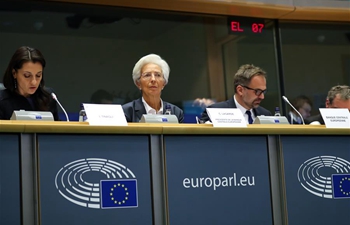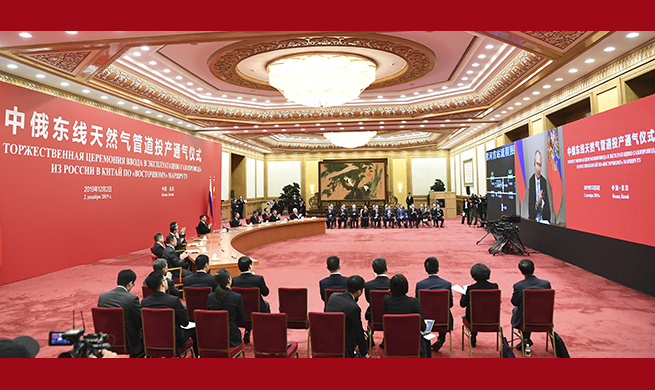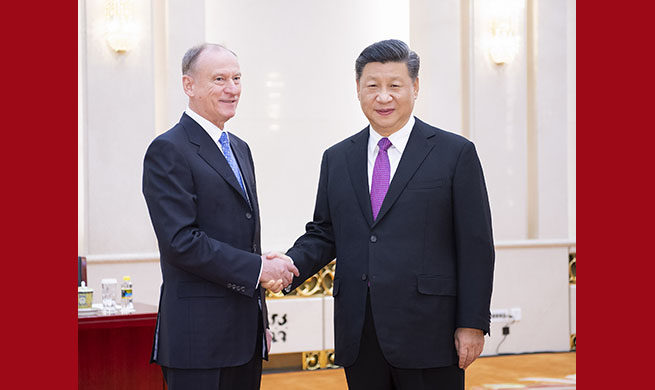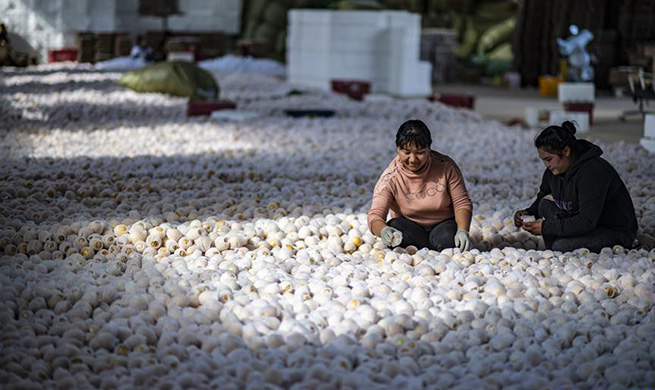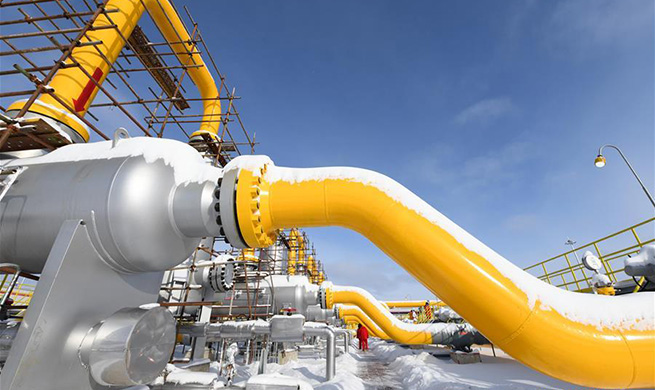HANGZHOU, Dec. 3 (Xinhua) -- China's Soton Daily Necessities Co., Ltd., one of the largest producers of drinking straws in the world, started to produce edible products made of starch this year.
Over the past few years, the company in the eastern Chinese city of Yiwu, China's largest small commodities hub, has beefed up research and development spending in a bid to move up the value chain.
In the years after 2000, Soton had to accept lower prices in a bid to win big orders from overseas clients. "The more orders we got, the thinner our profit margin got. We were in a vicious cycle," said Lou Zhongping, chairman of Soton.
Over the past two decades, Soton has applied more than 200 patents and led the formulation of eight industry standards, including five national standards and one ISO international standard.
"The first-class companies sell standards, the second-class ones sell brands and third-class ones sell products," said Lou. Soton has developed from simply a plastic drinking straws producer to a global industry leader that can make biodegradable straws and starch straws.
"Standards, the commanding heights in the market competition, have a direct bearing to the distribution of industry interests and the division of labor in the industrial chain," Pan Yang, head of the standardization research center with Zhejiang Lab.
Increasingly more Chinese enterprises are aware of the importance of participating in the formulation of industry standards as they move up the value chain for fatter profits.
Wang Jinwei, chairman of Tianpai Knitting Co., Ltd., a contract manufacturer for international brands Calvin Klein and Victoria's Secret in Yiwu, said he hoped to participate in the international standard-setting for the seamless underwear industry in the future.
Due to the lack of a uniform industry standard, there are widespread imitation and plagiarism cases in the rather young seamless underwear industry, said Wang.
The massive small commodity market in Yiwu has more than 2.1 million types of goods in 26 categories. A large number of these low-cost commodities are customized products for exports and do not have national or industrial standards, resulting in disorderly or even vicious competition in the industry, said Wang.
"Many local merchants engaging in lower-end products sales have been eliminated from the market due to cut-throat homogeneous competition," said Wang, a local in Yiwu who has seen the transition of the market over the past years.
Yiwu, home to over 70,000 small commodity wholesalers, has been stepping up efforts in formulating standards to push local businesses to move up the value chain and improve commodities quality.
The city hosted the China Yiwu International Commodities (Standards) Fair in October, the country's first international exhibition themed with standardization, with more than 1,600 exhibitors showcasing their standards for commodities and technical criteria.
Meanwhile, Yiwu released a guideline on building a standardized city in August, the first of its kind in China that calls for efforts to enhance the quality of small commodities and optimize market environment.
Local companies in Yiwu have contributed more to the formulation of industry or national standards for small commodities over the past years. The number of Yiwu-set industry or national standards increased from five in 2009 to 108 in 2018.
"We will use standardization to not only accelerate the commodities quality upgrading, but also boost high-quality growth for the whole city," said Lin Yi, secretary of the Yiwu Municipal Committee of the Communist Party of China.
Lin added that Yiwu aims to develop itself into the world's supermarket that sells China-made high-end products to the whole world, attracts overseas talents and businesses and buys from the whole world.






